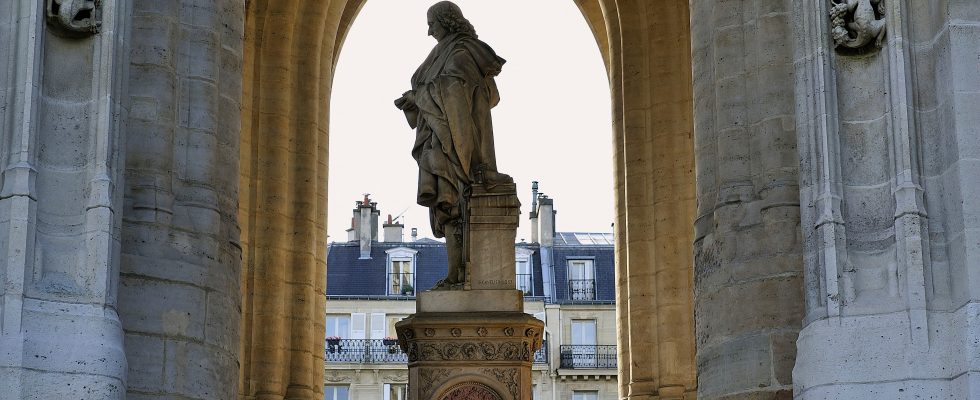It was necessary to dare: to offer all Pascal (1623-1662), one of the rare French writers whose name intimidates, worries, slaps like a black standard above the centuries and our memories of high school. All : not only the immense mosaic of Thoughts – apology for the Christian religion in a jigsaw style; not only the angry verve of Provincial – one of the first media polemics (against the laxity of the Jesuits); not only philosophy, theology, but also correspondence, birth and burial certificates, the papers hidden in the lining of the doublet, and all the treatises on physics and mathematics. Completeness might make you smile. At a time when budgets are being cut, the choice of academics Pierre Lyraud and Laurence Plazenet commands admiration and convinces: it gives Pascal the immensity of his genius and his heartbreaks, those of a very High intellectual potential which served science while preferring Jesus Christ to it. Of modest rank, the noble Clermontois burns the heart and sends shivers down the spine.
Rigor or… stiffness?
Let’s read it, therefore, in extenso, in this edition unique in its scope. It doesn’t matter that the scientific demonstrations of the 17th century are repulsive: it was crucial that the experiments on the void rub shoulders here with the reflections on the misery of man and the greatness of God, because they correspond to each other. If science and religion belong to different orders, their presentations have the same style, the same logical fervor. For Pascal, each serves a truth before which the mind must sooner or later bow. The curves and figures are the imperfect mirror of an even purer, more radiant Christian faith. In everything, this precocious eclectic wants exactitude, and above all in the use of words. Under the attack against the sophisms of the good fathers is heard the requirement of the geometric spirit, and in the wager of faith the rigor of probabilistic calculation. Rigor or… stiffness?
Dare to say it: Pascal is of an uncertain, paradoxical modernity, even in science where he does not have the flexibility of a Leibniz or a Fermat. If he grasps like no other the similarity of conical figures, so different in appearance (ellipse, parabola, hyperbola), he misses his consequence: the invention of a freely formalized geometry, detached from what we see. In his time, he knows everything, he understands everything, but standing upright on his bare penitent feet, he lacks the scientific changes that will make the most of what he detests: approximation and complexity. Where does this strange overhang come from, still today? A requirement that moves us because we only remember it. This height has as its corollary a radical skepticism, a virulent criticism of habits and customs, intellectual chimeras, evasions of social life, served by a sparkling style made up of chiasms and sudden reversals. Each fragment of the work is a seal whose wax burns by surprise, by the vividness of quotations that have become talismans: “truth on this side of the Pyrenees, error beyond”, “who wants to play the angel plays the beast”, etc. .
Each era has invented “its” Pascal
Of course, the fragment borders today on the cliché, and the editors are right to recall that each era invented “its” Pascal: the saint, the dark, the classic, the one who inspired both anti-modernists and thinkers. Marxists and critical sociology. But what other writer could brag about it? This is the characteristic of polyhedral works: they do not shine in the same way at different times of the day. It is just important to present them in the most complete way possible, and it is done with this “all Pascal” with admirable architecture, which resembles that of a castle of the soul, made up of dungeons, pediments, walkways. The visit is beautiful, educational. Admittedly, we could wince over certain choices, such as that of referring to the second copy of the Thoughts (today less obvious), but this edition will impose itself, henceforth, as that of reference – absolute edition if one wants to remain in the atmosphere.
The Work, by Pascal. Edition established by Pierre Lyraud and Laurence Plazenet, Books, 2,048 p., €38.
